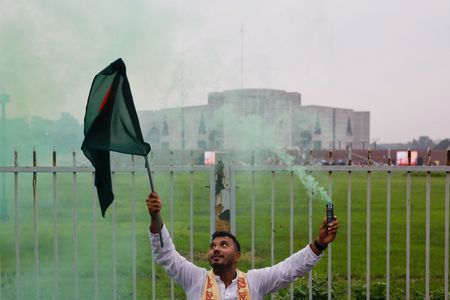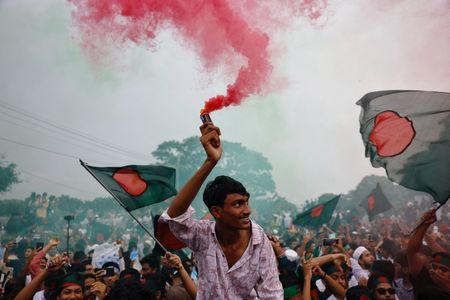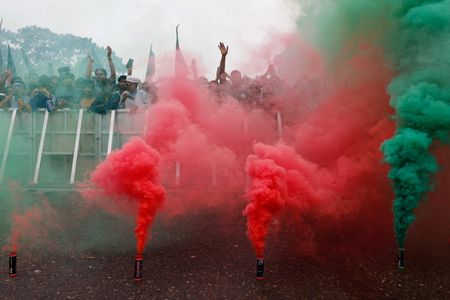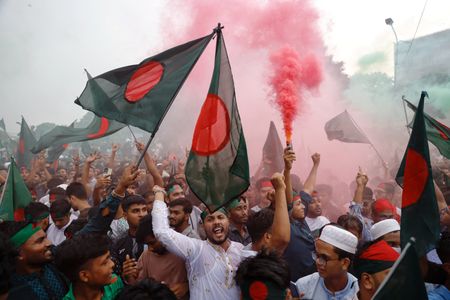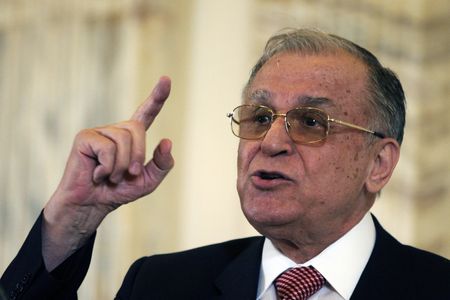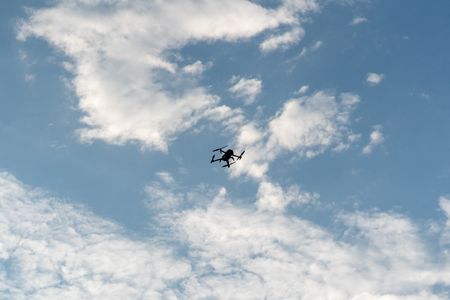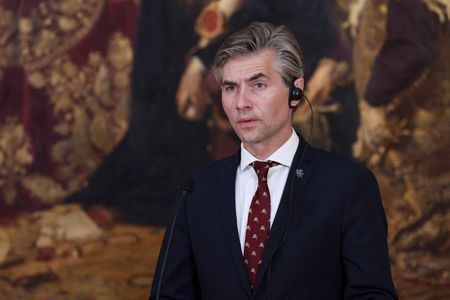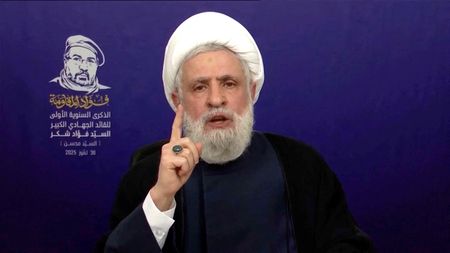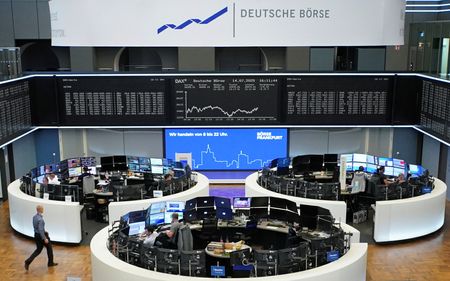DHAKA (Reuters) -Thousands of exultant Bangladeshis gathered in Dhaka on Tuesday to mark the first anniversary of mass protests that toppled Sheikh Hasina, as the interim government unveiled a road map for democratic reform with a national election next year.
Rallies, concerts, and prayer sessions were held in the capital as people celebrated what they called a “second liberation”.
The events culminated with Nobel peace laureate Muhammad Yunus reading out the “July Declaration”, which seeks to give constitutional recognition to the 2024 student-led uprising in response to repression and economic hardship that forced Hasina, then prime minister, to flee to India on August 5.
“The people of Bangladesh express their desire that the student-people uprising of 2024 will get proper state and constitutional recognition,” said Yunus, who heads the interim government installed after Hasina’s fall, as representatives of political parties looked on.
“The July Declaration will feature in the schedule of the reformed constitution as framed by the government formed through the next national election,” he said.
Supporters see the charter as a foundation for institutional reform; critics say its impact could be largely symbolic in the absence of a legal framework or parliamentary consensus.
Yunus said he would ask the election commission to organise national elections to be held in February 2026.
“We must ensure that no future government can become fascist again. The state must be repaired in such a way that whenever signs of fascism are found anywhere, it can be eradicated immediately,” he said.
Political parties, particularly the Bangladesh Nationalist Party (BNP) led by former Prime Minister Khaleda Zia, have urged that elections be held before the end of 2025 to avoid a political vacuum.
Yunus said next year’s election could be peaceful, fair and transparent.
While Hasina’s Awami League remains suspended, many believe it should be allowed to participate — despite its top leadership facing prosecution for alleged human rights violations during last year’s protests.
“Fallen autocrats and their self-serving allies remain active,”, Yunus said, urging unity to protect the gains of the uprising while his government holds talks with political parties and civil society.
His government had already launched sweeping reforms while trials for those responsible for the “July killings” of 2024 were progressing swiftly, he said.
MIXED EMOTIONS
Crowds waving flags, holding placards, and chanting slogans gathered near parliament, including some who had been injured in the protests.
“On this day in 2024, the tyrant Sheikh Hasina fled the country,” said Ahmedul Hasan. was here last year too. I’ve come again to remember that moment and join the celebrations.”
Others were less exuberant.
“Even after all the bloodshed and sacrifice, a truly liberal democracy in Bangladesh still feels like a distant dream,” said Sabbir Ahmed, a college student who joined the protests last year.
Police were on alert throughout the capital, with armoured vehicles on patrol to deter any attempt by the Awami League to disrupt events.
“Let this anniversary not be a day of retrospection, but a rallying cry for a brighter tomorrow,” Hasina said in an open letter to the people of Bangladesh, adding that she had never resigned as prime minister.
“Bangladesh has overcome adversity before, and we will rise again, stronger, more united, and more determined to build a democracy that truly serves its people,” she said.
(Reporting by Dhaka bureau and Sudipto Ganguly; Editing by Clarence Fernandez, YP Rajesh, Alex Richardson and Giles Elgood)

